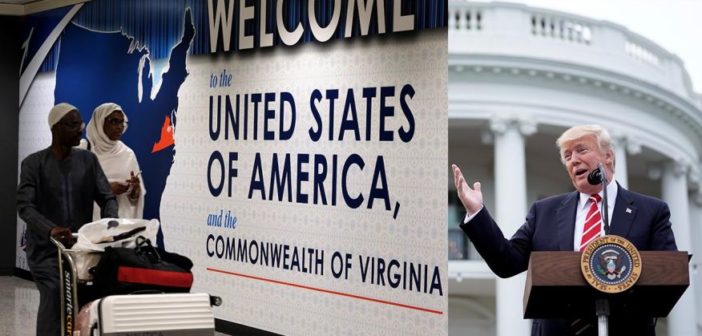A watered down version of President Donald Trump’s travel ban took effect Thursday evening, stripped of provisions that brought protests and chaos at airports worldwide in January yet still likely to generate a new round of court fights in the US and anxiety around the world.
The new rules, the product of months of legal wrangling, aren’t so much an outright ban as a tightening of already-tough visa policies affecting citizens from six Muslim-majority countries. Refugees are covered, too. Administration officials promised that implementation this time, which started at 8 p.m. EDT (0000 GMT), would be orderly. Customs and Border Protection spokesman Dan Hetlage said his agency expected “business as usual at our ports of entry,” with all valid visa holders still being able to travel.
Still, immigration and refugee advocates are vowing challenge the new requirements and the administration has struggled to explain how they will make the United States safer.
Under the temporary rules, citizens of Syria, Sudan, Somalia, Libya, Iran and Yemen who already have visas will be allowed into the United States. But people from those countries who want new visas will now have to prove a close family relationship or an existing relationship with an entity like a school or business in the U.S.
It’s unclear how significantly the new rules will affect travel. In most of the countries singled out, few people have the means for leisure travel. Those that do already face intensive screenings before being issued visas.
Nevertheless, human rights groups on Thursday girded for new legal battles. The American Civil Liberties Union, one of the groups challenging the ban, called the new criteria “extremely restrictive,” ”arbitrary” in their exclusions and designed to “disparage and condemn Muslims.”
The state of Hawaii filed an emergency motion Thursday asking a federal judge to clarify that the administration cannot enforce the ban against fiancés or relatives — such as grandparents, aunts or uncles — not included in the State Department’s definition of “bona fide” personal relationships.
The travel ban may have the largest impact on Iranians. In 2015, the most recently available data, nearly 26,000 Iranians were allowed into the United States on visitor or tourist visas. Iranians made up the lion’s share of the roughly 65,000 foreigners from the six countries who visited with temporary, or non-immigrant visas that year.




